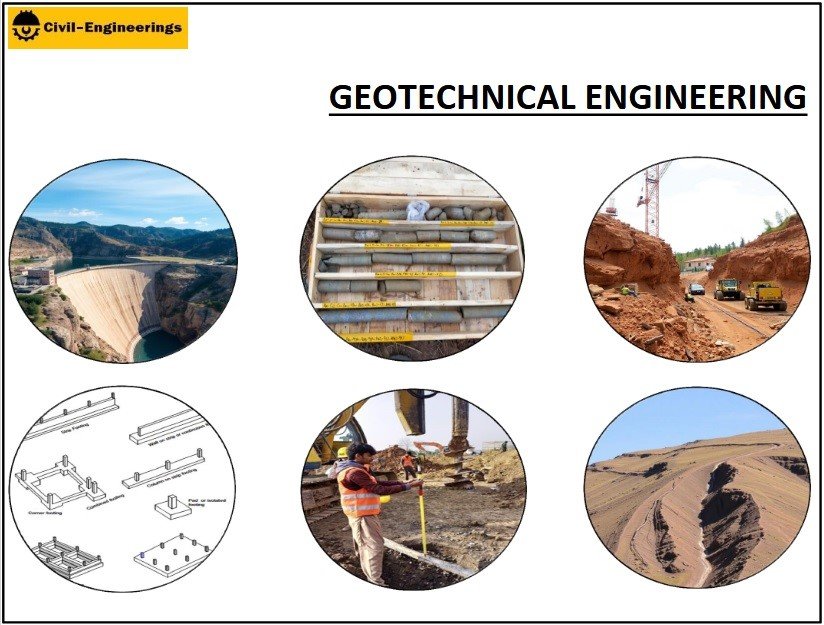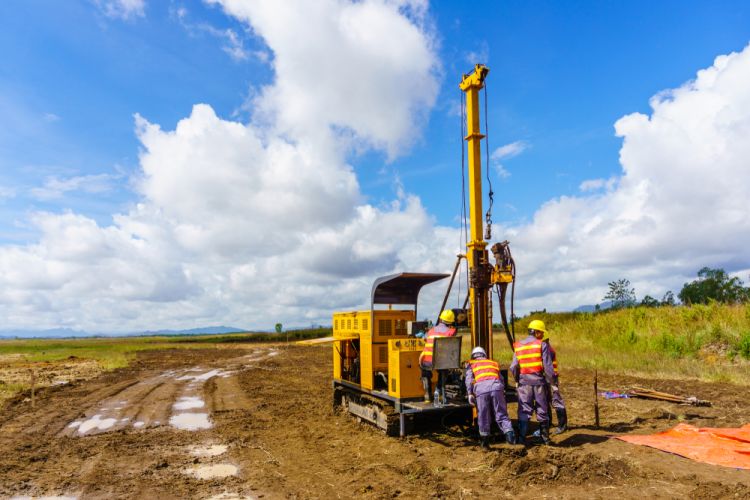Some Known Details About Geotechnical Engineering For Construction Projects
Some Known Details About Geotechnical Engineering For Construction Projects
Blog Article
The 45-Second Trick For Geotechnical Engineering For Construction Projects
Table of ContentsMore About Geotechnical Engineering For Construction ProjectsA Biased View of Geotechnical Engineering For Construction ProjectsGeotechnical Engineering For Construction Projects Fundamentals ExplainedWhat Does Geotechnical Engineering For Construction Projects Mean?The 30-Second Trick For Geotechnical Engineering For Construction ProjectsAbout Geotechnical Engineering For Construction ProjectsThe 9-Second Trick For Geotechnical Engineering For Construction Projects
"A report could be 25 years old, so the concern is: Has there been a structure on that website since they've done the report? Also in the instance of a rebuild, a geotechnical report carried out 10 years in the past is likely also old."It's not our location to tell them what they need to do, however it is within our right to [establish the danger] based on how they're going to progress," she stated. Both Cheryl and Joseph shared instances of red flags and failings connected to geotechnical issues. Cheryl kept in mind that, during building of the LRT passage in Ottawa (not a project she was included with), a huge sinkhole opened on Rideau Street, likely from the instability of damp, sandy soil in the location.
Geotechnical Engineering For Construction Projects for Beginners
"They were not able to control the groundwater and it began seeping into the structure walls throughout the course of building and construction," claimed Joseph. He added that, when building contractors and designers plan to use an uncommon or uncommon building and construction technique, this can be a red flag on a geotechnical record - Geotechnical Engineering for Construction Projects. With any kind of geotechnical report, Joseph stressed: "It's really essential for programmers and professionals to take another look at and follow the referrals."Loss control specialists are useful companions that can aid developers recognize the relevance of a geotechnical record and take steps to finish them
Geotechnical design is a branch of civil design; however, it involves utilizing clinical techniques and principles to accumulate and interpret the physical residential or commercial properties of the ground. Geotechnical engineers are involved in all phases of the style of structures, from idea to construction. Their work is vital in the layout and planning procedure as they evaluate the stability of soil, clay, silt, sand, and rock, prior to construction commencing.
A Biased View of Geotechnical Engineering For Construction Projects

Worldwide of construction and civil engineering, geotechnical design is a cornerstone self-control that ensures the safety and security, durability, and sustainability of any project. Without a solid understanding of the soil, rock, and various other planet products at a website, building trusted framework would be virtually impossible. At STS Geotechnics we strongly think in the significance of sharing the critical duty the Geotechnical Design plays in modern-day building and construction, website growth, and environmental stewardship.
Geotechnical designers evaluate soil, rock, groundwater, and various other subsurface problems to this evaluate their viability for building and construction. This knowledge permits them to predict just how these products will respond to frameworks like structures, roadways, dams, and bridges, assisting make sure secure and steady foundations. Every structure or infrastructure task relies upon a foundation that is safe and secure.
Geotechnical engineering helps stop different environmental hazards that can endanger both people and the setting. With dirt analysis, engineers can determine possible issues like landslides, soil liquefaction, and erosion risks.
Geotechnical Engineering For Construction Projects - Truths
For instance, engineers may create tasks that lower the requirement for too much excavation or minimize land disturbance, adding to the conservation of all-natural environments and decreasing the carbon footprint of building tasks. Correct geotechnical examination can dramatically decrease building and construction prices by determining possible problems before construction starts. Comprehending the subsurface conditions assists in choosing the very best structure kind and various other architectural elements, thus preventing pricey redesigns and repairs.
They assess all-natural disaster risks like earthquakes, flooding, or cyclones and help develop structures that are planned for these events. This resilience is especially crucial as environment adjustment brings about much more regular and severe weather events.: Making certain a secure structure is essential for any kind of framework. Geotechnical designers analyse soil and rock problems to advise the most effective structure style for stability and longevity.
The basic determines that geotechnical site examinations follow an iterative process (illustrated listed below) in which the results of the investigation are reviewed versus the purpose for which the investigation is being executed with additional examinations intended as required. Put simply, ground structure and condition can vary greatly also within a small website.
Projects that disregard this crucial solution risk their growth cracking, leaning, sinking, sliding and potentially falling down as the planet below it shifts. Experience determines that a Geotechnical Engineer needs to be generated throughout the first preparation phases of any kind of building project. Just then can their abilities, knowledge and referrals be utilized to avoid building difficulties prior to they occur.
The Greatest Guide To Geotechnical Engineering For Construction Projects
Worldwide of building, every building stands on a foundation and that foundation is built on the knowledge of geotechnical engineering. Typically unseen but indisputably essential, geotechnical design plays a critical function in making sure the security, safety, and durability of frameworks. From high-rise buildings to bridges, roads to dams, the significance of geotechnical engineering can not be overemphasized.

Geotechnical Engineering For Construction Projects Can Be Fun For Everyone
Incline security and Earth retention: In uneven or sloped terrain, keeping slope stability is essential to avoid landslides, erosion, and soil activity. Geotechnical engineers examine the security of inclines and design earth retention systems such as preserving wall surfaces or slope stablizing actions to reduce risks and ensure safety and security. Ground renovation strategies: Sometimes, the soil problems at a building site might disagree for developing without prior treatment.
Prior to installing pipes, tunnels, or below ground facilities, geotechnical engineers evaluate dirt problems and groundwater degrees to ensure appropriate positioning and avoid prospective dangers such as dirt negotiation or pipeline damages. Construction material option: Dirt properties affect the selection of construction products and methods. Geotechnical designers examine dirt attributes to identify the viability of products for foundations, embankments, and earthworks.
Geotechnical Engineering For Construction Projects Things To Know Before You Get This
By carrying out proactive upkeep actions, designers extend the life expectancy of structures and protect versus unexpected concerns. In verdict, the importance of geotechnical engineering in construction projects can not be overstated. From guaranteeing the security of structures to taking care of environmental threats, geotechnical designers play an essential duty in every phase of the building procedure.
Report this page